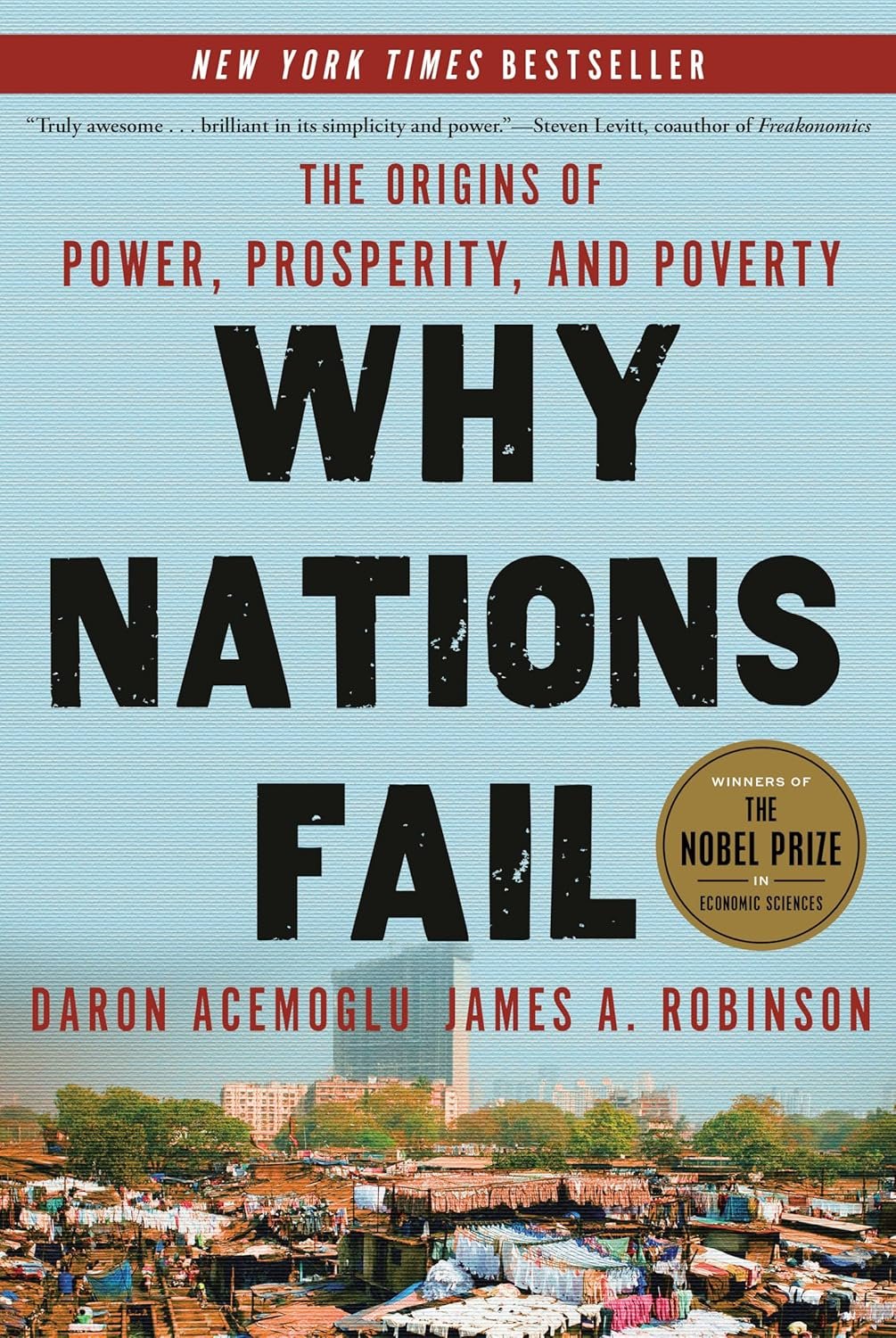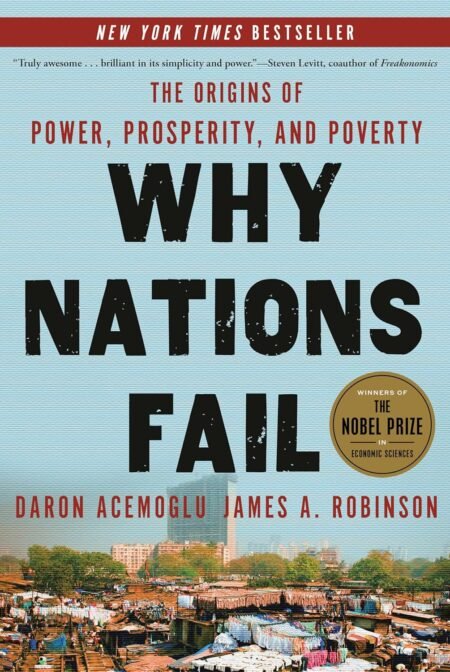Description
Why Nations Fail is a sweeping exploration of the fundamental reasons why some countries achieve long-term prosperity while others remain trapped in poverty, instability, and stagnation. Acemoglu and Robinson argue that the key to national success is not geography, culture, or even sheer resource wealth, but rather the quality of political and economic institutions. According to their thesis, nations flourish when they build inclusive institutions—systems that encourage participation from a broad segment of society, protect property rights, enforce the rule of law, and create incentives for innovation and productivity. Conversely, nations fail when they are dominated by extractive institutions—arrangements that concentrate power and wealth in the hands of a small elite, discourage innovation, and exploit the majority for the benefit of the few.
The authors draw on examples from across history and the globe, weaving together stories from the Roman Empire, medieval Venice, colonial Latin America, sub-Saharan Africa, and modern states like the United States, China, and North Korea. They show how political centralization combined with inclusivity fosters sustainable development, while centralized but extractive systems tend to generate short bursts of growth followed by stagnation or collapse. One of their central insights is that political institutions shape economic institutions, and that reform is often blocked by elites who fear losing their privileges in a more open, competitive Politics Books.













Reviews
There are no reviews yet.